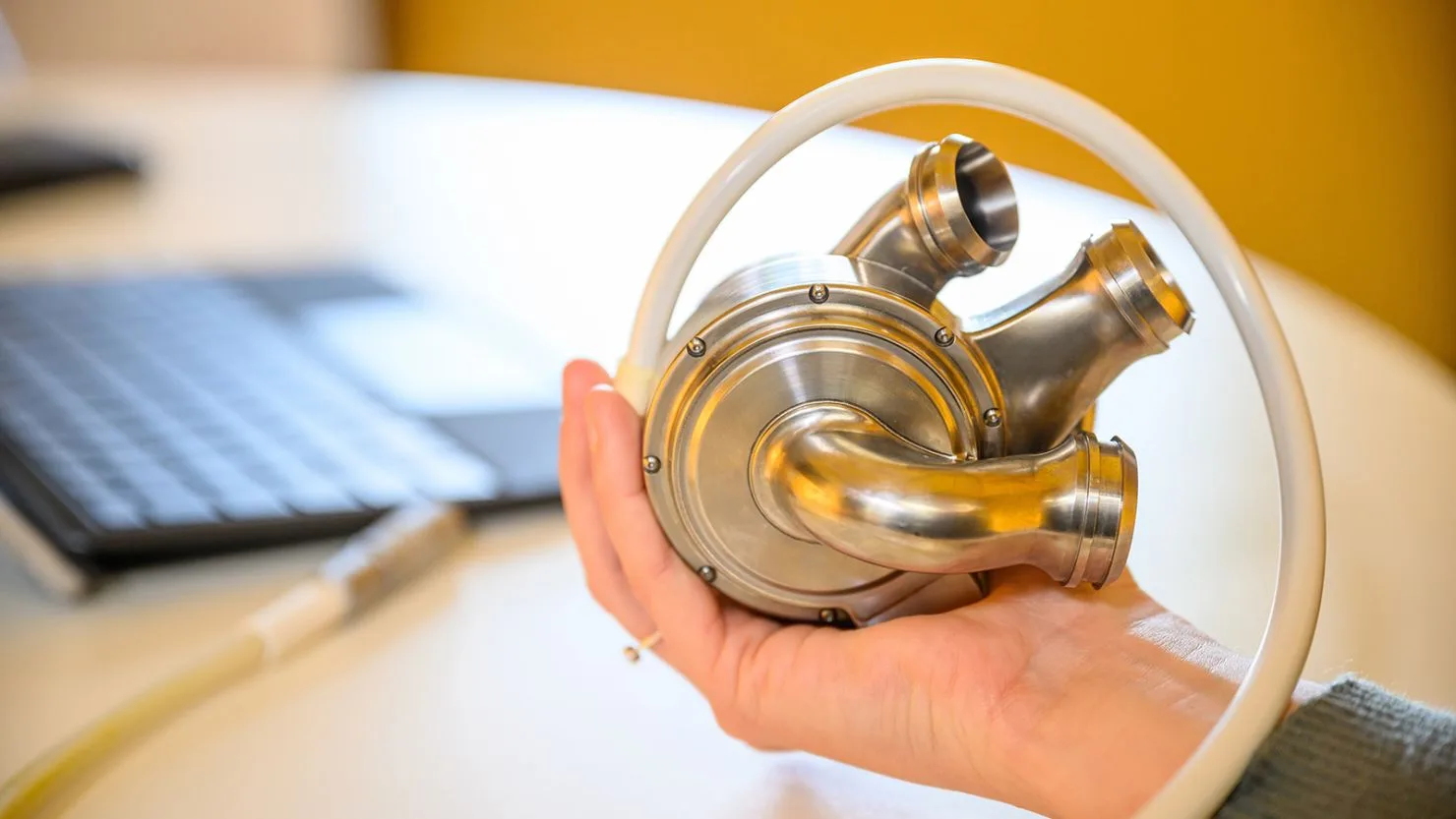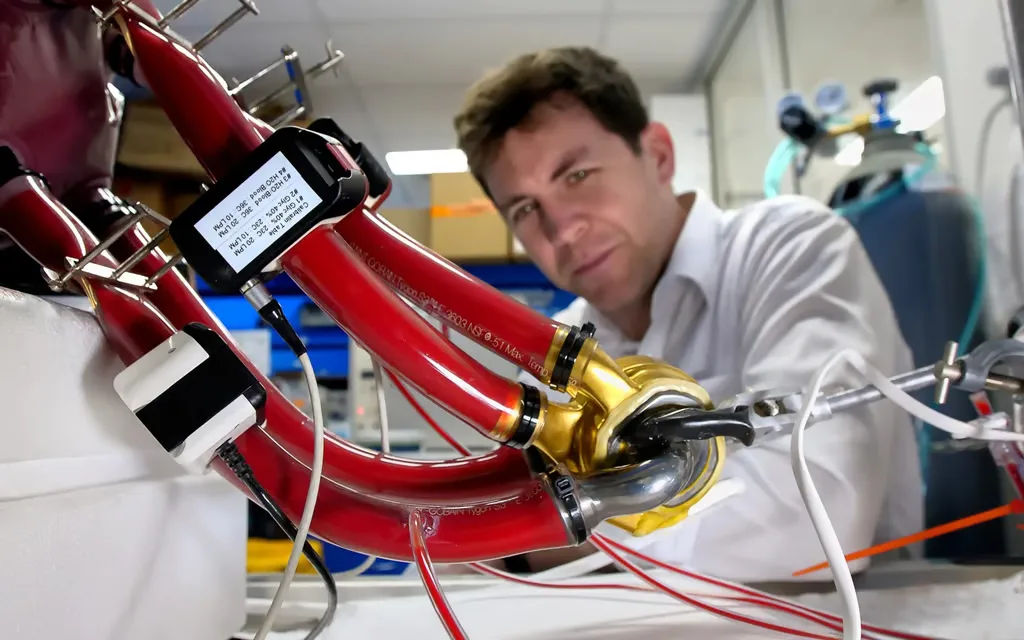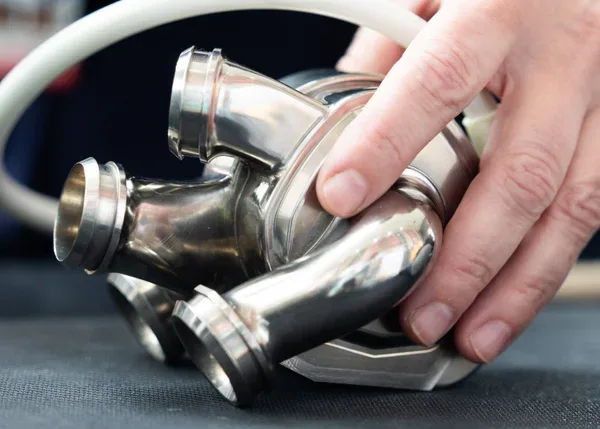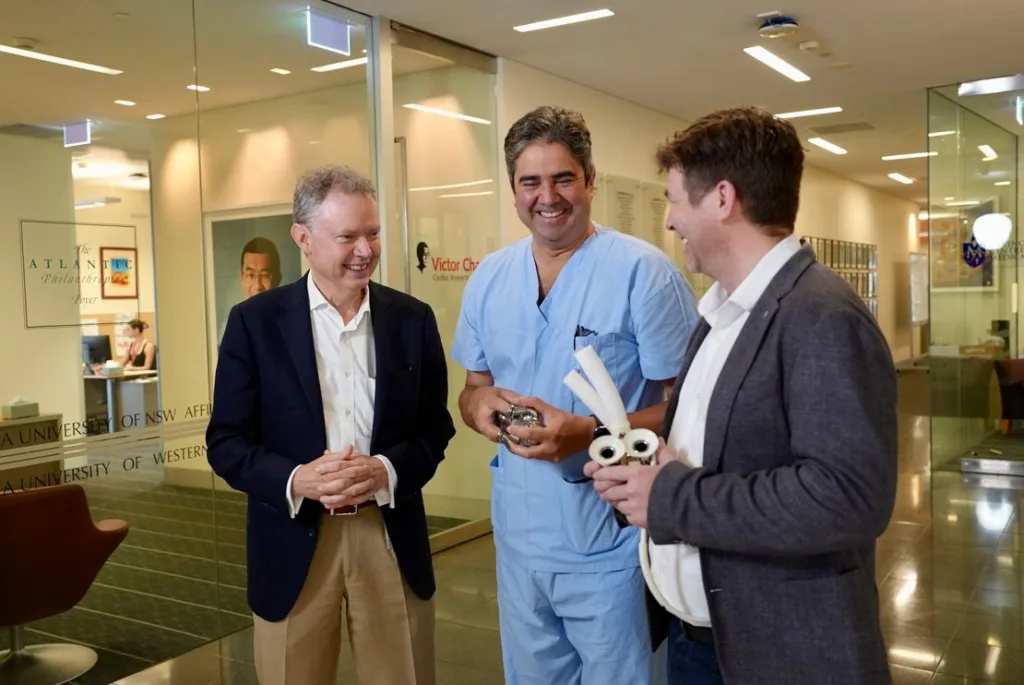Man Survives 100 Days with a Titanium Heart, The World’s First experiment!

In an exciting milestone for medical technology, an Australian man in his forties has become the first person in the world to leave the hospital with an artificial heart made of titanium. This groundbreaking device, called BiVACOR, is used as a temporary solution for patients with heart failure while they wait for a donor . Unlike previous cases where patients remained in the hospital while using the device, this Australian man lived with the BiVACOR for more than three months before undergoing a heart transplant. His recovery is going well, marking a significant development in failure treatment.
What is the BiVACOR Artificial Heart?
The BiVACOR device is a total replacement that functions as a continuous pump to circulate blood throughout the body. It uses a magnetically suspended rotor to propel blood in regular pulses, mimicking the natural pumping action of the It. The device is connected to a portable external controller through a cord tunneled under the skin, which runs on batteries during the day and can be plugged into the mains at night for recharging.

This innovative artificial heart was invented by Daniel Timms, a biomedical engineer, and is a crucial step forward in heart failure treatment. Previously, artificial of this kind were only used temporarily in hospital settings, but this success proves that patients can live with it outside the hospital as well.
A Groundbreaking Achievement in Cardiology
The Australian man is the sixth person globally to receive the BiVACOR artificial, but the first to live with it for more than a month. His ability to go home after three months of using the device highlights the potential for patients to regain a normal lifestyle while waiting for a transplant. This breakthrough has sparked excitement within the medical community and raises hopes for future treatment options for those suffering from heart failure.

“This is certainly an important development in the field,” said Julian Smith, a cardiac surgeon at the Victorian Heart Institute. “It is incredibly innovative,” added Sarah Aitken, a vascular surgeon at the University of Sydney. However, Aitken notes that there are still many unanswered questions about how well people can function with the device in the long term and its cost, which can be quite high due to the complexity of the surgery and research involved.
Addressing Heart Failure with a Limited Supply of Donor Hearts
Heart failure affects millions of people worldwide, and in the United States alone, nearly 7 million adults live with the condition. However, the supply of donor hearts is limited, with only around 4,500 transplants performed annually. As a result, the BiVACOR artificial heart could potentially serve as a life-saving solution for people who are ineligible for a transplant due to their age or other health conditions.
While the device is currently used as a temporary measure before a donor heart becomes available, some cardiologists believe it could one day become a permanent option for failure patients. This possibility remains untested in clinical trials but offers hope for those who have been waiting for a donor heart that may never arrive.
Real-World Testing and Further Research
Joseph Rogers, a failure cardiologist and president of the Texas Institute, emphasizes that the success of this Australian man’s case will provide valuable insights into how people cope with the BiVACOR in real-world conditions. Previous trials involved close monitoring in hospital settings, but this new achievement demonstrates that patients can live independently with the device.
Despite the excitement surrounding the BiVACOR, there are still challenges to overcome. The device is expensive, and the surgery required to implant it carries significant risks. Sarah Aitken acknowledges that this kind of research is incredibly challenging due to the high cost and complexity involved, but the potential benefits make it a worthwhile pursuit.

The Future of Heart Failure Treatment
The success of the BiVACOR artificial represents a monumental step in the fight against heart failure. As research continues and more people benefit from this innovative technology, it’s possible that the BiVACOR could become a game-changer for failure patients worldwide. Whether it remains a temporary solution or becomes a permanent option for those in need, this breakthrough offers new hope for individuals who once had limited choices in their battle with heart disease.
With the promise of further advancements and trials, the future of cardiac treatment looks brighter, and the possibility of improved quality of life for failure patients is becoming a reality.






